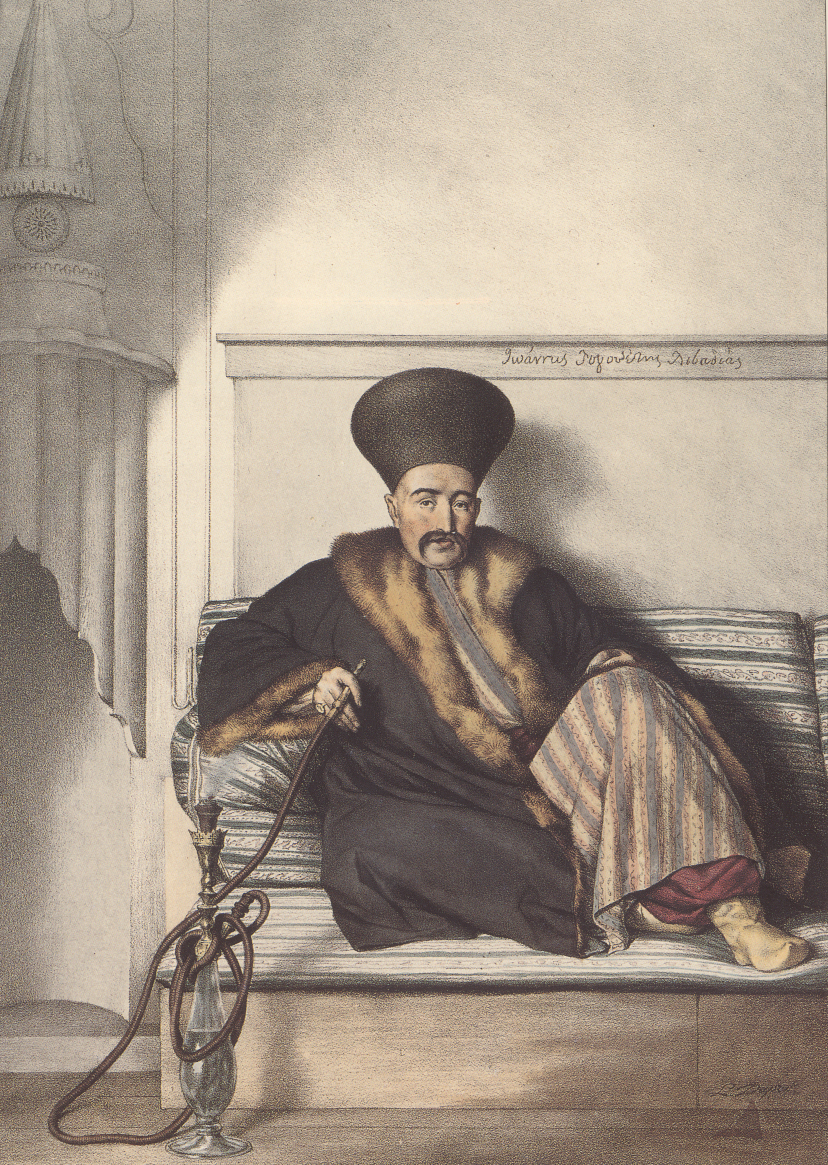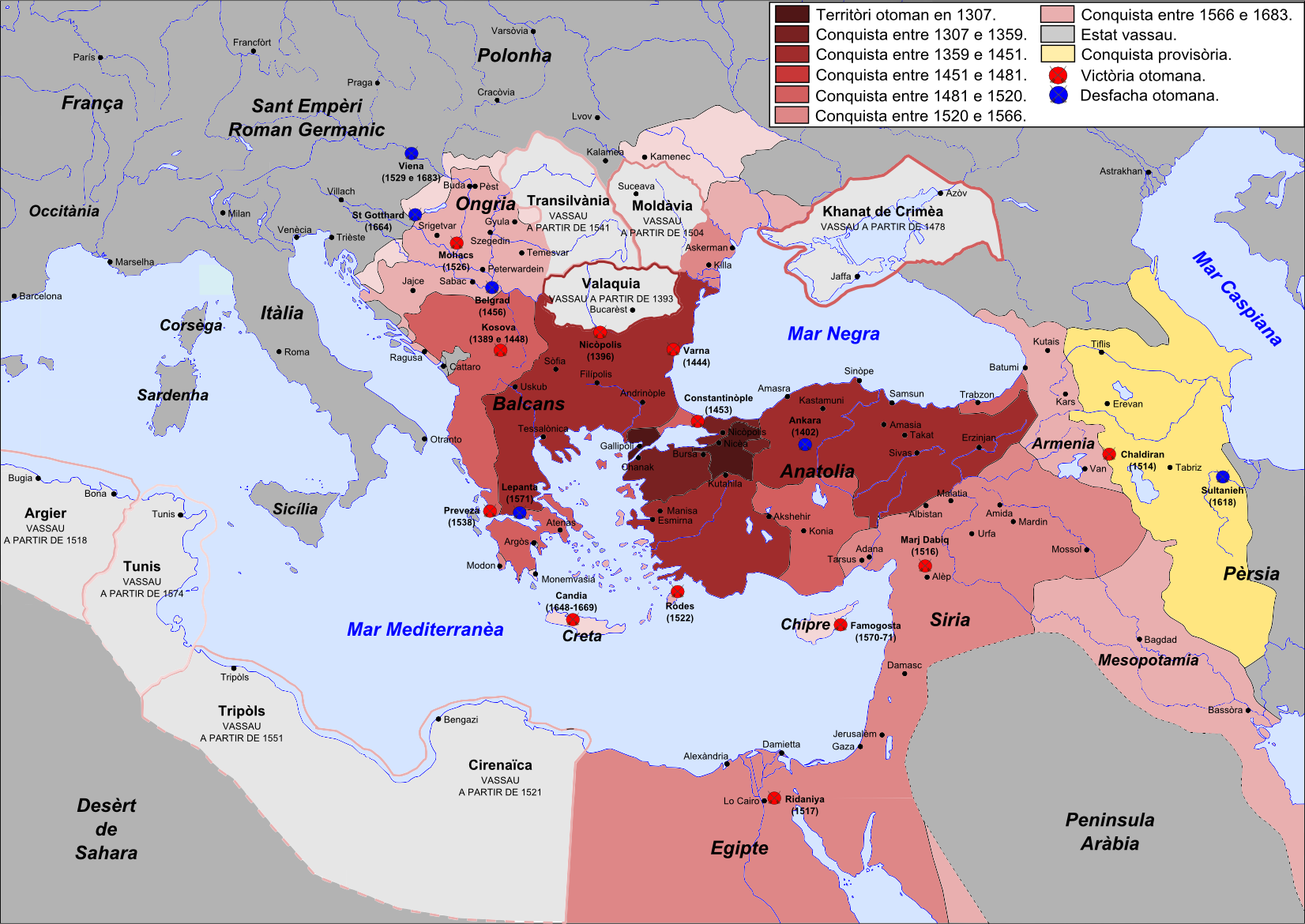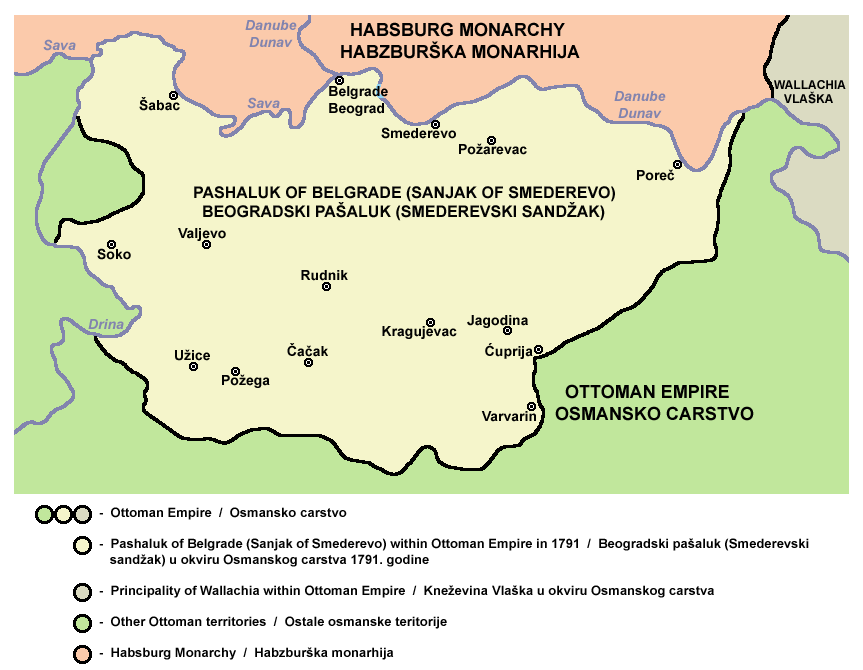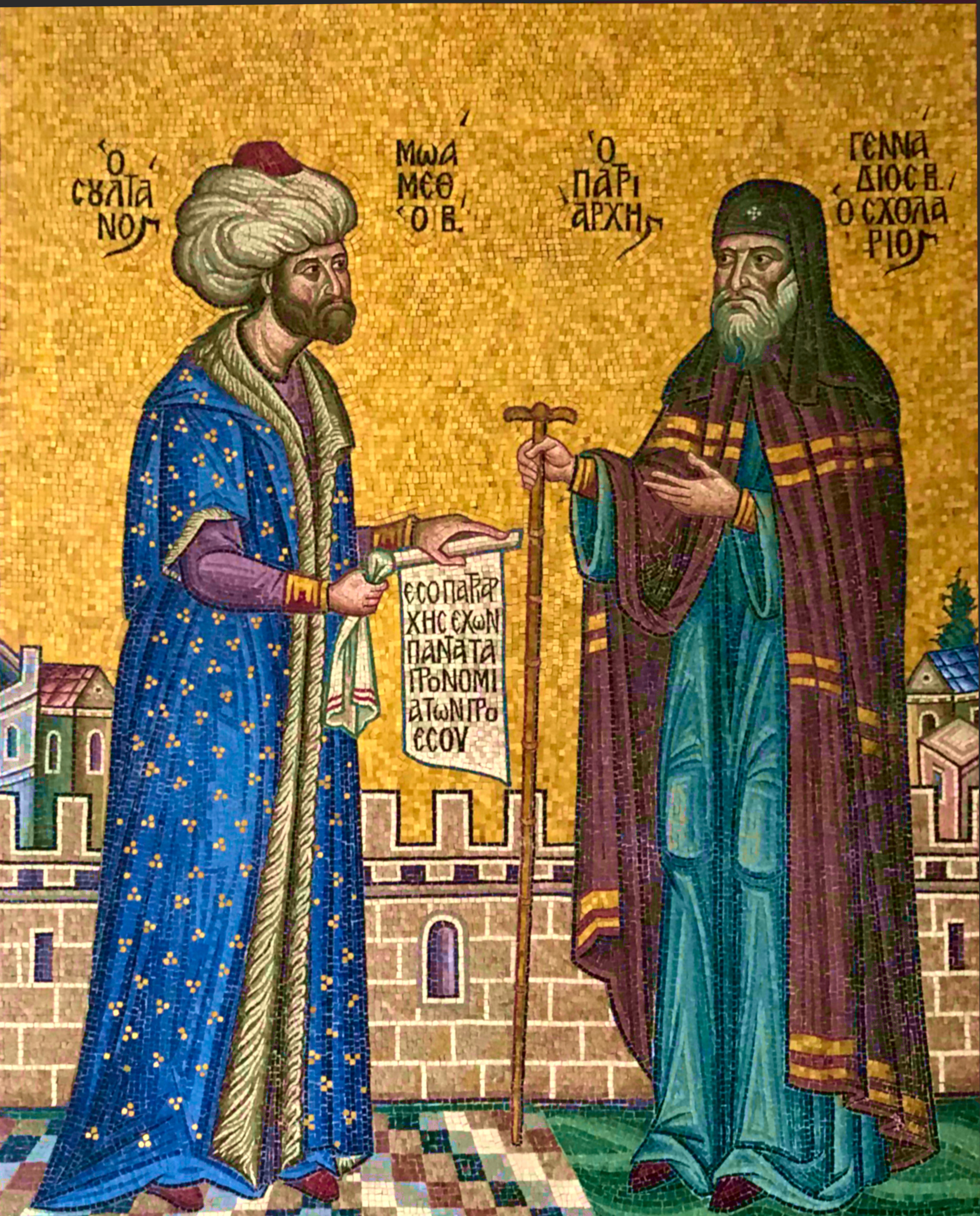|
Kodjabashis
The kodjabashis ( el, κοτζαμπάσηδες, kotzabasides; singular κοτζάμπασης, ''kotzabasis''; sh, kodžobaša, kodžabaša; from tr, kocabaṣı, hocabaṣı) were local Christian notables in parts of the Ottoman Balkans, most often referring to Ottoman Greece and especially the Peloponnese. They were also known in Greek as ''proestoi'' or ''prokritoi'' (προεστοί/πρόκριτοι, "primates") or ''demogerontes'' (δημογέροντες, "elders of the people"). In some places they were elected (such in the islands for example), but, especially in the Peloponnese, they soon became a hereditary oligarchy, who exercised considerable influence and held posts in the Ottoman administration. The title was also present in Ottoman Serbia and Bosnia, where it was known as ''starešina'' ("elder, chief") instead of the official Turkish name. The terms '' chorbaji'' (from Turkish ''çorbacı'') and '' knez'' (a Slavic title) were also used for this type of p ... [...More Info...] [...Related Items...] OR: [Wikipedia] [Google] [Baidu] |
Ottoman Titles
This is a list of titles and appellations used in the Ottoman Empire. In place of surnames, Muslims in the Empire carried titles such as "Sultan", "Pasha", " Hoca", " Bey", " Hanım", " Efendi", etc. These titles either defined their formal profession (such as Pasha, Hoca, etc.) or their informal status within the society (such as Bey, Hanım, Efendi, etc.). Later, family surnames were made mandatory in Turkey by the 1934 Surname Law. Usage by Ottoman royalty The sovereigns' main titles were Sultan, Padishah (Emperor) and Khan; which were of Arabic, Persian and Turkish/Mongolian origin, respectively. His full style was the result of a long historical accumulation of titles expressing the empire's rights and claims as successor to the various states it annexed or subdued. Beside these imperial titles, Caesar of Rome was among the important titles claimed by Sultan Mehmed II after the conquest of Constantinople. The title sultan (), originally meaning "authority" or "dominion", u ... [...More Info...] [...Related Items...] OR: [Wikipedia] [Google] [Baidu] |
Ottoman Greece
Most of the areas which today are within modern Greece's borders were at some point in the past part of the Ottoman Empire. This period of Ottoman rule in Greece, lasting from the mid-15th century until the successful Greek War of Independence that broke out in 1821 and the proclamation of the First Hellenic Republic in 1822 (preceded by the creation of the autonomous Septinsular Republic in 1800), is known in Greek as ''Tourkokratia'' ( el, Τουρκοκρατία, "Turkish rule"; en, "Turkocracy"). Some regions, however, like the Ionian islands, various temporary Venetian possessions of the Stato da Mar, or Mani peninsula in Peloponnese did not become part of the Ottoman administration, although the latter was under Ottoman suzerainty. The Eastern Roman Empire, the remnant of the ancient Roman Empire which ruled most of the Greek-speaking world for over 1100 years, had been fatally weakened since the sacking of Constantinople by the Latin Crusaders in 1204. The Ottoman ... [...More Info...] [...Related Items...] OR: [Wikipedia] [Google] [Baidu] |
Obor-knez
Obor-knez ( sr-Cyrl, обор-кнез) was a title borne by elected local native Serbian chiefs (Knyaz) of the ''nahiyah'' (district of a group of villages) in the Ottoman Sanjak of Smederevo (also known as the Pashalik of Belgrade). The obor-knez was senior chief and responsible for his district's people and was their spokesman (intermediary) in direct relations with the Pasha, though usually through the ''sipahi'', and was in charge of the transfer of taxes levied on the villages. The vojvoda and obor-knez titles were given to people approved by the Pasha. The title was hereditary, being succeeded by one's son. The obor-knez, as a senior, had several knezes under him, who held sub-districts or one village each. History In 1788, Koča's frontier rebellion saw eastern Šumadija occupied by Austrian Serbian freikorps and hajduks. The Siege of Belgrade from 15 September to 8 October 1789, a Habsburg Austrian force besieged the fortress of Belgrade. The Austrians held the city un ... [...More Info...] [...Related Items...] OR: [Wikipedia] [Google] [Baidu] |
Greek Civil Wars Of 1824–1825
Greek may refer to: Greece Anything of, from, or related to Greece, a country in Southern Europe: *Greeks, an ethnic group. *Greek language, a branch of the Indo-European language family. **Proto-Greek language, the assumed last common ancestor of all known varieties of Greek. **Mycenaean Greek, most ancient attested form of the language (16th to 11th centuries BC). **Ancient Greek, forms of the language used c. 1000–330 BC. **Koine Greek, common form of Greek spoken and written during Classical antiquity. **Medieval Greek or Byzantine Language, language used between the Middle Ages and the Ottoman conquest of Constantinople. **Modern Greek, varieties spoken in the modern era (from 1453 AD). *Greek alphabet, script used to write the Greek language. *Greek Orthodox Church, several Churches of the Eastern Orthodox Church. *Ancient Greece, the ancient civilization before the end of Antiquity. * Old Greek, the language as spoken from Late Antiquity to around 1500 AD. Other uses * ' ... [...More Info...] [...Related Items...] OR: [Wikipedia] [Google] [Baidu] |
Christians From The Ottoman Empire
Christians () are people who follow or adhere to Christianity, a monotheistic Abrahamic religion based on the life and teachings of Jesus Christ. The words ''Christ'' and ''Christian'' derive from the Koine Greek title ''Christós'' (Χριστός), a translation of the Biblical Hebrew term '' mashiach'' (מָשִׁיחַ) (usually rendered as ''messiah'' in English). While there are diverse interpretations of Christianity which sometimes conflict, they are united in believing that Jesus has a unique significance. The term ''Christian'' used as an adjective is descriptive of anything associated with Christianity or Christian churches, or in a proverbial sense "all that is noble, and good, and Christ-like." It does not have a meaning of 'of Christ' or 'related or pertaining to Christ'. According to a 2011 Pew Research Center survey, there were 2.2 billion Christians around the world in 2010, up from about 600 million in 1910. Today, about 37% of all Christians live in the Ame ... [...More Info...] [...Related Items...] OR: [Wikipedia] [Google] [Baidu] |
Turkish Words And Phrases
Turkish may refer to: *a Turkic language spoken by the Turks * of or about Turkey ** Turkish language *** Turkish alphabet ** Turkish people, a Turkic ethnic group and nation *** Turkish citizen, a citizen of Turkey *** Turkish communities and minorities in the former Ottoman Empire * Ottoman Empire (Ottoman Turkey), 1299–1922, previously sometimes known as the Turkish Empire ** Ottoman Turkish, the Turkish language used in the Ottoman Empire * Turkish Airlines, an airline * Turkish music (style), a musical style of European composers of the Classical music era See also * * * Turk (other) * Turki (other) * Turkic (other) * Turkey (other) * Turkiye (other) * Turkish Bath (other) * Turkish population, the number of ethnic Turkish people in the world * Culture of Turkey * History of Turkey ** History of the Republic of Turkey The Republic of Turkey was created after the overthrow of Sultan Mehmet VI Vahdettin b ... [...More Info...] [...Related Items...] OR: [Wikipedia] [Google] [Baidu] |
Government Of The Ottoman Empire
The Ottoman Empire developed over the years as a despotism with the Sultan as the supreme ruler of a centralized government that had an effective control of its provinces, officials and inhabitants. Wealth and rank could be inherited but were just as often earned. Positions were perceived as titles, such as viziers and ''aghas''. Military service was a key to many problems. The expansion of the Empire called for a systematic administrative organization that developed into a dual system of military ("Central Government") and civil administration ("Provincial System") and developed a kind of separation of powers: higher executive functions were carried out by the military authorities and judicial and basic administration were carried out by civil authorities. Outside this system were various types of vassal and tributary states. Most of the areas ruled by the Ottomans were explicitly mentioned in the official full style of the sultan, including various lofty titles adopted t ... [...More Info...] [...Related Items...] OR: [Wikipedia] [Google] [Baidu] |
Oligarchy
Oligarchy (; ) is a conceptual form of power structure in which power rests with a small number of people. These people may or may not be distinguished by one or several characteristics, such as nobility, fame, wealth, education, or corporate, religious, political, or military control. Throughout history, power structures considered to be oligarchies have often been viewed as tyrannical, relying on public obedience or oppression to exist. Aristotle pioneered the use of the term as meaning rule by the rich, for which another term commonly used today is plutocracy. In the early 20th century Robert Michels developed the theory that democracies, like all large organizations, tend to turn into oligarchies. In his "Iron law of oligarchy" he suggests that the necessary division of labor in large organizations leads to the establishment of a ruling class mostly concerned with protecting their own power. Minority rule The exclusive consolidation of power by a dominant religious or e ... [...More Info...] [...Related Items...] OR: [Wikipedia] [Google] [Baidu] |
The Balkans Since 1453
''The Balkans Since 1453'' is a book by the Greek-Canadian historian L.S. Stavrianos published in 1958. It is a large, synthetic work which encompasses the major political, economic and cultural events of the Balkans from the fall of the Byzantine Empire to the late 1940s. Stavrianos paid particular attention to the national awakening and the nation-building process in the Balkans. The book was highly acclaimed by many historians of the Balkans, including Traian Stoianovich and Mark Mazower Mark Mazower (; born 20 February 1958) is a British historian. His expertise are Greece, the Balkans and, more generally, 20th-century Europe. He is Ira D. Wallach Professor of History at Columbia University in New York City Early life Mazowe .... External links Jason C. Mavrovitis on the book 1958 non-fiction books History books about the Balkans 20th-century history books English-language books {{Europe-hist-book-stub ... [...More Info...] [...Related Items...] OR: [Wikipedia] [Google] [Baidu] |
Rum Millet
Rūm millet (millet-i Rûm), or "''Roman nation''", was the name of the Eastern Orthodox Christian community in the Ottoman Empire. Despite being subordinated within the Ottoman political system, the community maintained a certain internal autonomy. Establishment and development After the fall of Constantinople to the Ottoman Empire in 1453, all Orthodox Christians were treated as a lower class of people. The Rum millet was instituted by Sultan Mehmet II who set himself to reorganise the state as the conscious heir of the East Roman Empire. The Orthodox congregation was included in a specific ethno-religious community under ''Graeco-Byzantine'' domination. Its name was derived from the former Eastern Roman (a.k.a. ''Byzantine'') subjects of the Ottoman Empire, but all Orthodox Greeks, Bulgarians, Albanians, Aromanians, Megleno-Romanians and Serbs, as well as Georgians and Middle Eastern Christians, were considered part of the same millet in spite of their differe ... [...More Info...] [...Related Items...] OR: [Wikipedia] [Google] [Baidu] |
Phanariotes
Phanariots, Phanariotes, or Fanariots ( el, Φαναριώτες, ro, Fanarioți, tr, Fenerliler) were members of prominent Greek families in Phanar (Φανάρι, modern ''Fener''), the chief Greek quarter of Constantinople where the Ecumenical Patriarchate is located, who traditionally occupied four important positions in the Ottoman Empire: Voivode of Moldavia, Voivode of Wallachia, Grand Dragoman, and Grand Dragoman of the Fleet. Despite their cosmopolitanism and often-Western education, the Phanariots were aware of their Greek ancestry and culture; according to Nicholas Mavrocordatos' ''Philotheou Parerga'', "We are a race completely Hellenic". They emerged as a class of wealthy Greek merchants (of mostly noble Byzantine descent) during the second half of the 16th century, and were influential in the administration of the Ottoman Empire's Balkan domains in the 18th century. The Phanariots usually built their houses in the Phanar quarter to be near the court of the Patriar ... [...More Info...] [...Related Items...] OR: [Wikipedia] [Google] [Baidu] |
Hydra Island
Hydra, or Ydra or Idra ( el, Ύδρα, Ýdra, , Arvanitika: Nύδρα/Nidhra), is one of the Saronic Islands of Greece, located in the Aegean Sea between the Myrtoan Sea and the Argolic Gulf. It is separated from the Peloponnese by a narrow strip of water. In ancient times, the island was known as Hydrea (Ὑδρέα, derived from the Greek word for "water"), a reference to the natural springs on the island. The municipality of Hydra consists of the islands Hydra (pop. 1,948, area ), Dokos (pop. 18, area ), and a few uninhabited islets, total area . The province of Hydra ( el, Επαρχία Ύδρας) was one of the provinces of the Argolis and Corinthia prefecture from 1833 to 1942, Attica prefecture from 1942 to 1964, Piraeus prefecture from 1964 to 1972 and then back to Attica as part of the newly establishment Piraeus prefecture of Attica prefecture. Its territory corresponded with that of the current municipality. It was abolished in 2006. Today the municipality ... [...More Info...] [...Related Items...] OR: [Wikipedia] [Google] [Baidu] |







